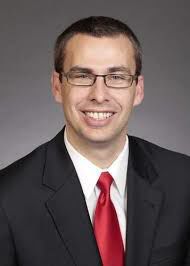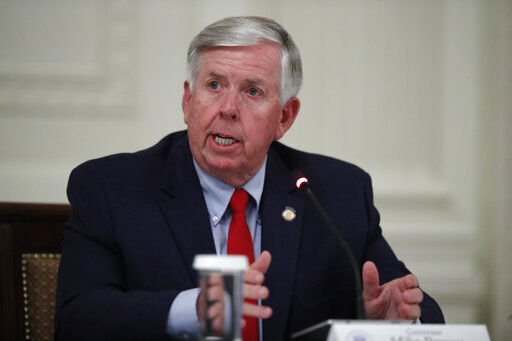Iowa senator defends proposed changes to absentee voting
DES MOINES — Local elections officials and Democratic state lawmakers have criticized proposed changes to Iowa’s elections introduced last week by Sen. Roby Smith, a Republican from Davenport.
Democrats say the measure promotes voter suppression, and county auditors question the need.
Smith on Monday defended it, arguing some provisions in the bill will increase voter participation.
“Nowhere in this bill do we curb absentee voting. We actually expand absentee voting, and more votes will count under this legislation,” Smith said.
One of the most contentious elements of the bill would prohibit the state’s top elections official from mailing absentee ballot request forms to voters.
Secretary of State Paul Pate, a Republican, mailed absentee ballot request forms to all registered Iowa voters ahead of the June 2 primary. The reasoning was to encourage as many Iowans as possible to vote early by mail and limit the number of in-person voters on Election Day during the new coronavirus pandemic.
The result was record turnout: More than 500,000 votes were cast in the primary, according to Pate’s office.
Smith said he felt the ban on such actions was necessary because the Legislature did not appropriate funding for it, and because duplications occurred in some counties where local elections officials also sent out absentee ballot request forms.
Smith said under his proposal local elections officials still could send out absentee ballot request forms, as could political campaigns. The restriction applies only to the secretary of state.
“Nothing in here stops the ballot request forms from going out (at the local level or from campaigns),” Smith said.
Another provision would limit the extent to which local elections officials could reduce the number of polling sites in an election. During the primary, many counties significantly reduced the number of polling locations to limit the number of poll workers forced to interact with voters during the pandemic.
Smith felt some counties went too far in reducing the number of polling sites, that some disproportionately reduced the number of urban or rural precincts, and that because of the reductions some sites had long lines of voters. The proposed legislation would create a limit of a 35% reduction of polling sites.
“We cannot reduce our polling locations by 90 percent,” Smith said. “I had people contacting me, saying, ‘I don’t want to vote absentee. I want to vote at the polls.’”
The proposal also requires a driver’s license number or voter identification number on the absentee ballot request form. Currently, if that information is absent, elections officials find the information in their databases and fill it in. Under Smith’s bill, election officials would have ask the voter to get that information.
Smith said the legislation also included the extensions of some deadlines to request absentee ballots, which he said would allow for more people to vote absentee. The proposed legislation extends from three days to 10 days the time period in which individuals who are hospitalized can request an absentee ballot, and it provides an extra week after the election for individuals who fail to sign the envelope when returning their ballot.
The proposal passed through the Senate State Government Committee, which Smith chairs, on Friday after a sometimes heated debate. It is now eligible to be debated by the full Iowa Senate, and if it passes there would go before the Iowa House before heading to the governor’s desk.
Tony Bisignano, a senator from Des Moines and the top Democrat on the committee, remained unpersuaded by Smith’s arguments.
“I don’t think it’s fair when we talk about elections that it has to be done on a county basis or a regional basis or a city basis. Everyone should have the same opportunity to vote,” Bisignano said. “If a pandemic isn’t bad enough to go to an absentee ballot program, I don’t know what is. The attack on the secretary of state is unfair. He did a great job, a lot of people voted and there has been no evidence of fraud.”













